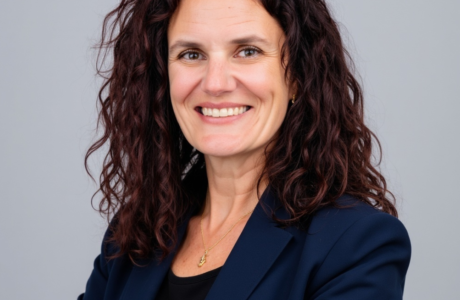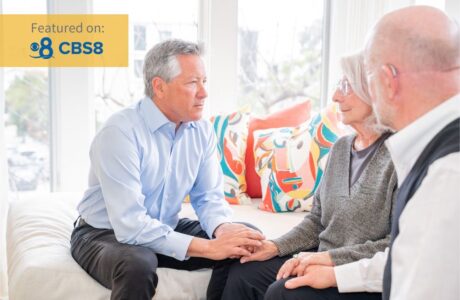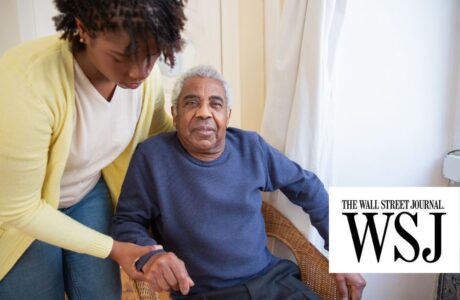
Revolutionizing End of Life Care: A Call to Transform the Health & Wellness Industry

In this interview with Authority Magazine, Dr. Bob Uslander, co-founder of Empowered Endings, shares his journey from the bustling emergency rooms of Chicago to becoming a pioneer in holistic Palliative and End of Life Care in San Diego. The interview explores how his experience as a physician and the personal losses of dear friends and family led him to shift from practicing traditional emergency medicine to changing the paradigm of End of Life Care.
Dr. Uslander’s (“Dr. Bob”) life was forever changed when a friend faced metastatic malignant melanoma at the age of 31. Witnessing the power of compassionate care, Dr. Bob realized the need for a comprehensive, holistic approach to end-of-life experiences. This began his commitment to providing care and support beyond the limitations of Healthcare’s conventional insurance-based model.
His story demonstrates the gaps in the current healthcare system, the critical need for improvement in its approach to the final chapters of life, and the importance of new models of care that can bridge the gaps and redefine End of Life Care for all, like the Empowered Endings Medical Group. Read the full article here.
Here are a few key takeaways that would reform and drastically improve Healthcare, in particular End of Life Care:
1. Engaged Physician Involvement is Vital.
In Healthcare’s current model for supporting end-of-life journeys, physicians are often disengaged and absent from the patients’ and families’ experience. Dr. Bob highlights the need for more physicians to offer intensive, personalized care during this critical phase of life. His experience speaks to the powerful impact of having actively engaged physicians providing trauma-preventative, emotionally supportive, and comprehensive care and counsel throughout the journey.
2. Comprehensive Support for Patients AND Loved Ones is a Game-changing.
Navigating the complexities of Palliative and End of Life Care can be overwhelming for most families and caretakers. Dr. Bob underscores the need for a dedicated support system to guide patients and families through this dynamic journey. A committed team of expert providers, including doctors and doulas—end-of-life guides and companions–who are available 24/7 to offer emotional, spiritual, family, and grief support, ensure that questions are answered promptly, anxieties are assuaged effectively, and everyone feels supported throughout the journey.
3. Life-Enhancing Care and Support Make a Big Impact.
Life-enhancing options for those grappling with complex and terminal illnesses include traditional, alternative, and holistic therapies that are variably available in the covnentional models of Palliative and End of Life Care. Dr. Bob advocates for the integration of life-enhancing therapies that complement medical interventions, offering patients and families a more complete and empowered experience.
4. Education Regarding Legal End of Life Options is Empowering.
A significant gap exists in informing patients about their legal End of Life Options. Dr. Bob stresses the importance of specialized education and support in legal end-of-life options, including Medical Aid in Dying and Voluntary Stopping Eating and Drinking. This knowledge empowers individuals to make informed decisions and mitigates unnecessary suffering. He also suggests that physicians and other Palliative and End of Life Care providers be educated in the nuances of this new field of medicine.
5. More Advance Care Planning Conversations are Needed.
Inadequate planning for end-of-life scenarios is a prevalent issue. Speaking openly about our preferences and wishes can be challenging, so it is often discouraged or neglected. Dr. Bob encourages and supports individuals and their loved ones in having these conversations so they can prevent crises, unwanted treatment, and unnecessary suffering. His passion for eliminating fear and struggle in the final chapters of life begins with creating a vision for an Empowered Ending and is the foundation for his commitment to supporting everyone in creating their Empowered End of Life Experience.
6. The Healthcare System is not Built for the Patients.
As Dr. Bob explains, the healthcare system is an enormous industrial complex that increasingly focuses on maximizing the bottom line and minimizing liability for the stakeholders–primarily the healthcare organizations and private insurance companies responsible for delivering and paying for the care. As a result, the status quo of care for people with complex and terminal illnesses is often inadequate. The reality is that many of these people do not receive the support and guidance they need and often find themselves in a crisis, feeling adrift and alone, wondering what happened, not knowing where to turn or what to do.
The Empowered Endings model of care can change this by providing comprehensive, compassionate, in-home support for patients and families that wraps around and complements the available services while taking nothing away. Dr. Bob affirms, “The partnership between doctors and end-of-life doulas will change the landscape of End of Life Care, providing more options, more peace of mind, and more Empowered Endings.”





